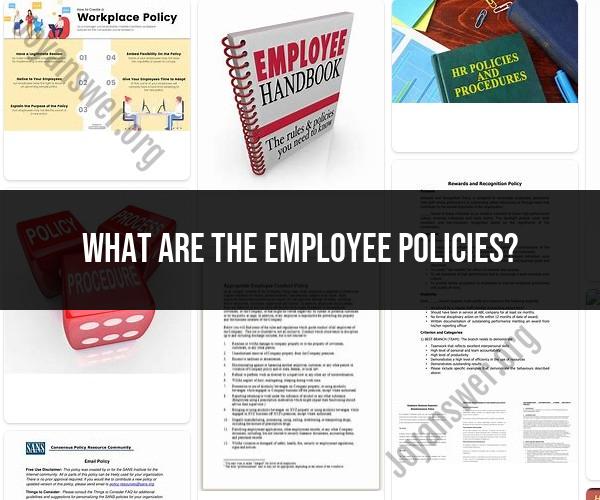What are the employee policies?
Employee policies are a set of guidelines, rules, and standards established by an organization to govern the behavior, conduct, and interactions of its employees. These policies provide a framework for how employees are expected to behave and perform their duties while representing the company. Employee policies cover a wide range of areas and topics within the workplace. Some common examples of employee policies include:
Code of Conduct: A code of conduct outlines the ethical and behavioral expectations that employees must adhere to. It often covers topics such as honesty, integrity, respect, and professionalism.
Anti-Discrimination and Harassment: These policies ensure that all employees are treated fairly and respectfully, and they prohibit any form of discrimination, harassment, or retaliation based on factors such as race, gender, religion, or age.
Workplace Safety: Policies related to workplace safety outline guidelines for maintaining a safe and healthy work environment. This includes protocols for handling emergencies, using safety equipment, and reporting safety hazards.
Attendance and Leave: These policies address issues related to attendance, punctuality, and various types of leave (sick leave, vacation, parental leave, etc.). They provide information on how to request and manage time off.
Dress Code: Dress code policies specify the appropriate attire for employees while at work. This may vary based on the nature of the business and the level of professionalism required.
Social Media and Technology Use: These policies guide employees on the acceptable use of company-provided technology and their behavior on social media platforms. They often address issues of privacy, confidentiality, and appropriate content.
Conflict of Interest: Conflict of interest policies outline situations where employees' personal interests may conflict with the interests of the company. They provide guidelines on how to avoid and address such conflicts.
Data Security and Privacy: These policies establish protocols for handling sensitive company and customer data to ensure its security and compliance with relevant regulations.
Performance Evaluation and Feedback: These policies define the process and criteria for evaluating employee performance, setting goals, and providing feedback.
Communication: Communication policies cover both internal and external communication, outlining expectations for how employees interact with colleagues, clients, and the public.
Benefits and Compensation: These policies detail the various benefits and compensation packages offered to employees, including information about salary, bonuses, healthcare benefits, retirement plans, and more.
Whistleblower Protection: These policies encourage employees to report any unethical or illegal behavior within the organization without fear of retaliation.
The importance of employee policies lies in their ability to promote consistency, fairness, and a positive work environment. They provide employees with clear guidelines for behavior, reduce misunderstandings, help prevent legal issues, and contribute to a cohesive company culture. Organizations often review and update these policies regularly to ensure they remain relevant and effective.











